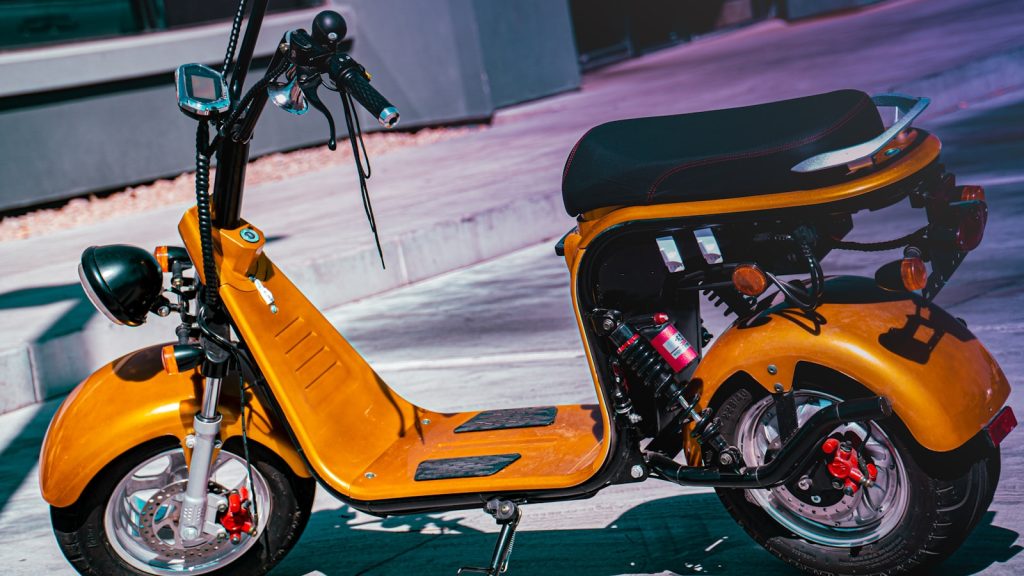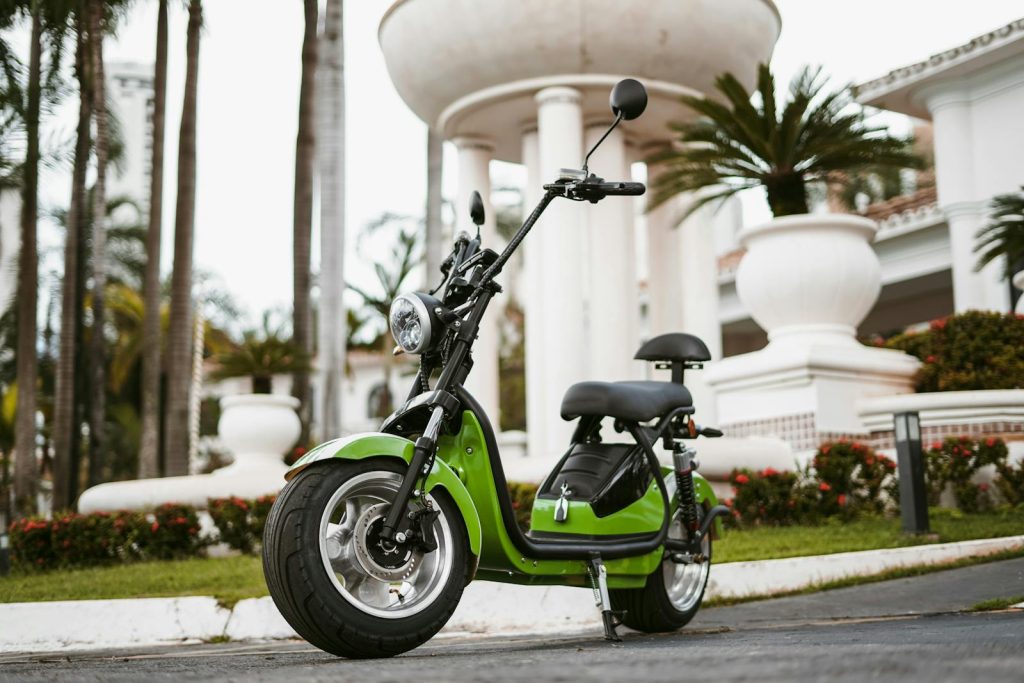What Makes Mopeds Illegal in Washington DC? Uncover the Details!

Washington, DC, is facing a significant issue with the illegal operation of mopeds. Recently, the police have intensified their efforts to address this problem, leading to numerous citations, impounded vehicles, and even arrests. This crackdown is a response to growing safety concerns and reckless usage that has alarmed many residents.
The surge in moped use, particularly for delivery purposes, has made streets busier and, in many cases, more hazardous. Under Operation Ride Right, the Metropolitan Police Department is now more focused than ever on ensuring all motorized scooters and mopeds comply with regulations.
As we see more mopeds throughout the city, understanding the legal requirements and the steps being taken to enforce them becomes crucial. The DC police’s actions aim to create safer streets and a more regulated environment for riders and residents.
Overview of Washington DC’s Moped Landscape
Washington, DC, has seen a significant increase in moped use over the past few years. Many residents find mopeds to be a convenient and economical mode of transport, and the rise in moped registrations has clearly reflected this trend.
According to the DC Department of Motor Vehicles, moped registrations have jumped nearly 165% in the last two years. 2022 there were just 54 registrations, while last year saw 143 moped registrations. As of 2024, 78 mopeds have already been registered.
Reasons for the Surge
- Affordability: Mopeds provide an inexpensive alternative to cars.
- Convenience: They are easier to park and navigate through traffic.
- Delivery Services: Many delivery drivers prefer mopeds for their efficiency.
Legal and Safety Challenges
With the moped boom, we also witness an increase in unregistered and illegal mopeds. D.C. police have started cracking down on these violations. The ongoing campaign resulted in 108 citations, 117 impounded mopeds, and 24 arrests.
Operation Ride Right is another initiative launched to address safety concerns and enforce traffic rules among moped and scooter users. Our neighborhoods are seeing more officer deployments to ensure compliance.
Regulations and Proposals
D.C. leaders are actively working on legislation to require mandatory moped registration. This is aimed at curbing the proliferation of unregistered mopeds. By doing so, officials hope to bring order and improve road safety.
For a deeper dive into the situation, the article by WTOP News on police crackdowns provides additional insights.
The Legal Framework Governing Mopeds in DC
Specific regulations and penalties govern the legal use of mopeds in Washington, DC. Understanding these requirements is vital for all moped owners and riders.
Moped Registration and Regulations
In Washington, DC, mopeds must be registered and meet several regulations to be considered legal. A motor-driven cycle must have an engine size of 50cc or smaller and should not exceed 30 mph. Mopeds and motorized scooters must be registered with the Department of Motor Vehicles (DMV).
Operators must also hold a valid driver’s license and have insurance. Without these, mopeds are considered illegal, and their use on public roads can result in significant penalties. These measures ensure that mopeds comply with street-legal requirements and help maintain road safety.
Penalties for Non-Compliance
Penalties for non-compliance with moped regulations in DC are strict. Recently, the police have intensified efforts to crack down on illegal moped use, leading to numerous citations and impounded vehicles. Failing to register a moped or riding without proper documentation can result in fines and vehicle impoundment.
Additional consequences include potential arrests for those violating the laws repeatedly or engaging in unsafe driving practices. These measures are part of a broader initiative to address safety concerns related to increasing mopeds on city streets. Compliance with these regulations is crucial to avoid these severe penalties.
Challenges Posed by Illegal Mopeds
Illegal mopeds in Washington, DC, bring several challenges to the city, including increased traffic congestion, heightened noise pollution, and adverse environmental impacts.
Traffic Congestion and Accidents
Illegal mopeds significantly contribute to traffic congestion. Many are ridden by delivery drivers, increasing the number of vehicles on already busy roads. Due to their small size and high maneuverability, mopeds often weave through traffic, creating dangerous situations for riders and other road users and leading to accidents.
Additionally, unregistered and unregulated use of mopeds can complicate traffic enforcement. With a 165% increase in moped registrations over the last two years, addressing these issues is crucial to improving road safety. Enforcement operations, such as the D.C. police’s Operation Ride Right, aim to curb these illegal activities by impounding unregistered vehicles and ensuring compliance with traffic laws.
Noise Pollution
The proliferation of illegal mopeds also exacerbates noise pollution in urban areas. Mopeds, especially older or poorly maintained ones, can be quite loud, disrupting the peace in residential neighborhoods. This constant noise can be a nuisance for residents, affecting their quality of life and sleep patterns.
Increased complaints about moped noise indicate growing discontent among city dwellers. As the number of mopeds on the streets rises, addressing this issue becomes more pressing to maintain a livable environment for everyone.
Environmental Impact
Illegal mopeds often do not meet the environmental standards required for legal vehicles. Many of these mopeds may emit higher levels of pollutants due to older engines and lack of proper maintenance. This contributes to air pollution and negatively impacts public health.
Furthermore, the surge in moped usage, as evidenced by the influx of registrations, raises concerns about increased emissions. Implementing stricter regulations and ensuring that all mopeds comply with environmental norms can help mitigate these adverse effects and promote a healthier urban atmosphere.
Enforcement and Public Safety Measures
DC has seen an uptick in illegal moped activity, prompting targeted enforcement actions to ensure public safety and legal compliance. Let’s explore the strategies law enforcement uses to tackle this issue.
Law Enforcement Strategies
The Metropolitan Police Department’s new initiative, Operation Ride Right, targets illegal mopeds and scooters across the city. This program was implemented in response to rising public complaints about reckless moped driving.
Officers have been deployed to various neighborhoods, issuing citations and impounding unregistered vehicles. According to WTOP News, the police have already issued 108 citations and impounded 117 mopeds. Furthermore, they’ve made 24 arrests linked to illegal moped activities.
Public awareness campaigns also play a crucial role. Authorities aim to reduce non-compliance and improve road safety by educating residents and moped users about existing regulations. This comprehensive approach addresses immediate enforcement needs and long-term behavioral changes in moped usage.
Future Considerations and Policy Suggestions
Our approach to addressing Washington, D.C.’s illegal moped problem must include potential regulation reforms and leveraging technological advancements to ensure enforcement and safety.
Potential Regulation Reforms
We need comprehensive reforms that target the root causes of illegal moped activity. Stricter registration requirements, mandatory safety inspections, and enhanced traffic law enforcement are essential.
A new bill could mandate point-of-sale registration for all moped purchases, ensuring compliance immediately. We should also consider higher penalties for violations, including unregistered mopeds and reckless driving. These measures can help reduce illegal activities and enhance accountability among moped users.
Technology Integration
Integrating technology can play a pivotal role in enforcing regulations and improving safety. We could implement electronic monitoring systems, such as GPS tracking, for all registered mopeds. This would enable easier location tracking of stolen or illegally operated mopeds.
Additionally, intelligent traffic cameras capable of detecting moped violations in real time could be deployed across high-traffic areas. Partnering with tech companies to develop city-wide apps for reporting illegal moped activity can also streamline enforcement efforts. Our focus should be on creating a tech-enabled framework that deters illegal actions and promotes safer road usage.
Conclusion and a Call to Action
Our city faces a significant challenge with illegal moped use. This issue demands immediate and concerted efforts from all of us.
Residents: We encourage you to stay vigilant. Report any suspicious moped activity to the authorities. Your cooperation is crucial in helping maintain our community’s safety.
Moped Riders: Ensure your vehicle is registered and meets all legal requirements. Adhering to the law helps avoid fines and penalties and ensures everyone’s safety.
Policy Makers and Law Enforcement: Let’s continue to work together to create and enforce policies that effectively address this problem. Enhanced oversight and consistent enforcement are key to curbing illegal moped activities.
We all have a role to play. Working together can make our streets safer and more enjoyable for everyone. The task may be challenging, but we can achieve our goals with dedication and collaboration.
For more details on the recent crackdown and how you can help, please visit the full article on DC police cracking down on illegal mopeds.
Let’s act now to ensure a safer and more organized community.
Elizabeth Redd, the Publisher of this website, grew up in a small town called Newhall, West Virginia, before moving to Washington, DC, in 1964. She worked in Prince George's County Public School System in Maryland for 40 years, opened a wig shop, made clothes, and participated in fashion shows during the '70s and '80s. She worked part-time as a caterer for a couple of years. Hand dancing has been one of her passions. She has also worked in Internet marketing for the last ten years. She also has a passion for learning new things.
She has learned that success is measured not so much by the position one has reached in life but by the obstacles one has overcome while trying to succeed. One thing is for sure: she is living her best life.

